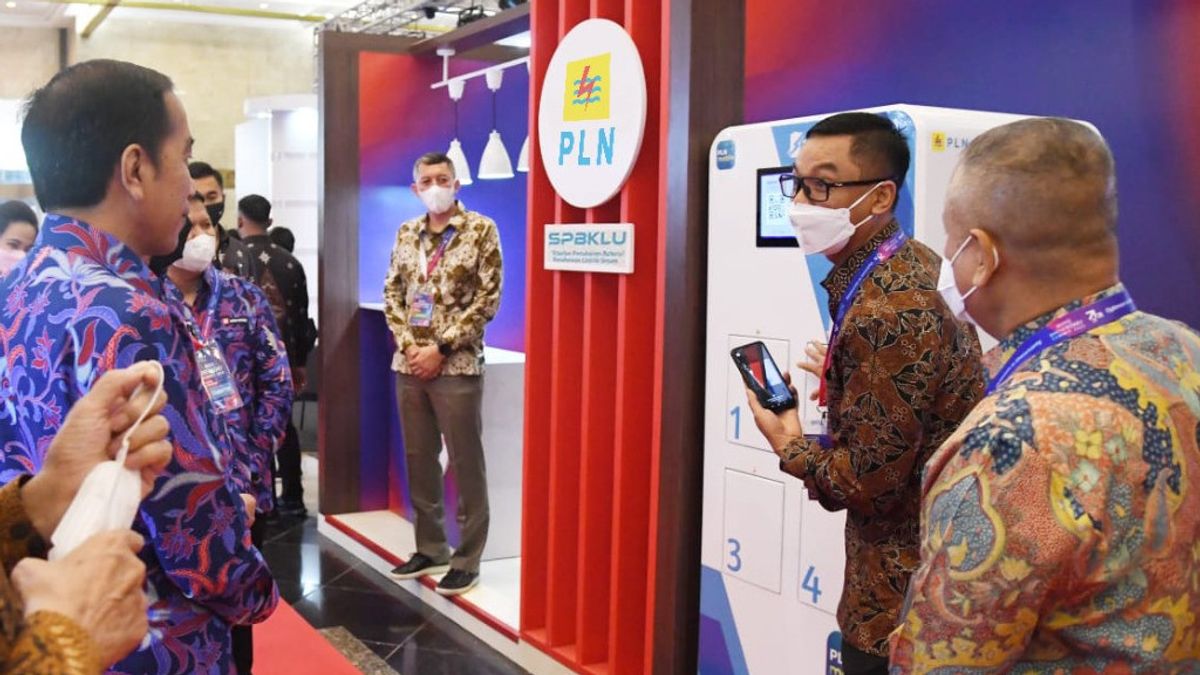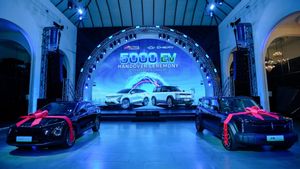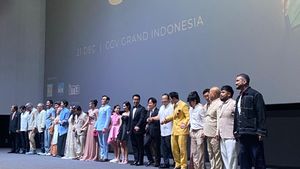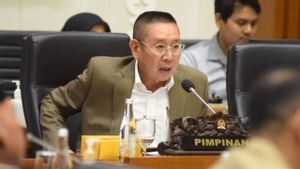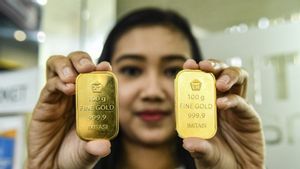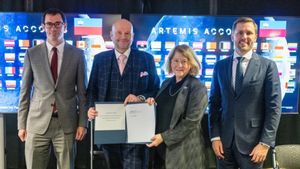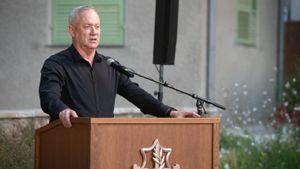JAKARTA - The President of the Republic of Indonesia, Joko Widodo, inspects the Public Electric Vehicle Battery Exchange Station (SPBKLU) owned by PT PLN (Persero). The presence of this battery exchange service makes it easier for electric motorcycle users to charge their vehicles.
Present on the same occasion were the President Director of PLN, Darmawan Prasodjo explained, the presence of the SPBKLU makes electric motor users simply exchange their batteries to SPKBLU and no longer need to wait for charging. This is a form of PLN's support for the electric vehicle ecosystem.
"So the concept is very easy, electric motor users just come to SPBKLU, open the PLN Mobile application, then exchange batteries with whose power is full and ready to be used. Only about 1 minute, through PLN Mobile they can immediately get a battery with full power," he explained in a written statement, Wednesday, October 12.
Darmawan said that PLN is targeting the operation of 70 units of the Public Electric Vehicle Battery Distribution Station (SPBKLU) this year. As of September 2022, PLN has already conducted operational trials of 16 SPBKLU units in Jakarta.
This SPBKLU is part of a collaboration between PLN - BRIN - Grab and Viar. In October, PLN will add four more SPBKLU units and 50 SPBKLU units in December.
"This SPBKLU is an important infrastructure in encouraging the massive electric vehicle in Indonesia. Considering that it can encourage the growth of electric vehicles driven by many two-wheeled vehicles. In addition, the price of electric motors is already competing with motorcycles made from oil," he said.
In order to encourage the growth of the SPBKLU, PLN has also prepared a cooperation scheme for the SPBKLU franchise. Prospective partners can act as providers of electric vehicle charging facilities, land and property providers, as well as providers of operations and maintenance of SPBKLU.
In the SPBKLU franchise cooperation provided by PLN, prospective partners can act as providers of electric vehicle charging facilities, land and property providers, as well as providers of operations and maintenance of SPBKLU.
"One of the partnership schemes offered by PLN is the franchise, where partners do not need to be bothered by licensing, providing equipment, maintenance and supporting applications in the electric vehicle refill infrastructure," said Darmawan.
Darmawan hopes that the increasing number of SPBKLUs can support the construction of an electric vehicle ecosystem to accelerate the clean energy transition in the country.
In terms of emissions, continued Darmawan, the transportation sector contributes 280 million tons of CO2e per year. This is one of the contributors to carbon emissions and the highest subsidy burden in Indonesia. If left without intervention, by 2060 it will be 860 million tons of CO2e.
Darmawan said that the use of electric vehicles is more environmentally friendly than fuel vehicles. From the calculation of 1 liter of fuel is equal to 1.2 kWh of electricity. The carbon issue of 1 liter of fuel is 2.4 kilograms. While 1 kWh of electricity in the electricity system in Indonesia, the emission is only about 0.85 kg of CO2e. This means that 1.2 kWh, the emission is about 1.1 kg of CO2e.
"By using electric vehicles, we have become part of reducing carbon emissions by more than 50 percent," he explained.
SPBKLU has now been widely used by electric motorcycle users. The convenience has also been felt by one of the online motorcycle taxi drivers in Jakarta, Achmad Iskandar. According to him, a full battery can be used to cover a distance of about 60 kilometers.
"Every day I can be more than 60 km. The presence of this SPBKLU makes the use of electric motors easier, because they change their batteries quickly and can return to work driving passengers," concluded Achmad.
The English, Chinese, Japanese, Arabic, and French versions are automatically generated by the AI. So there may still be inaccuracies in translating, please always see Indonesian as our main language. (system supported by DigitalSiber.id)
